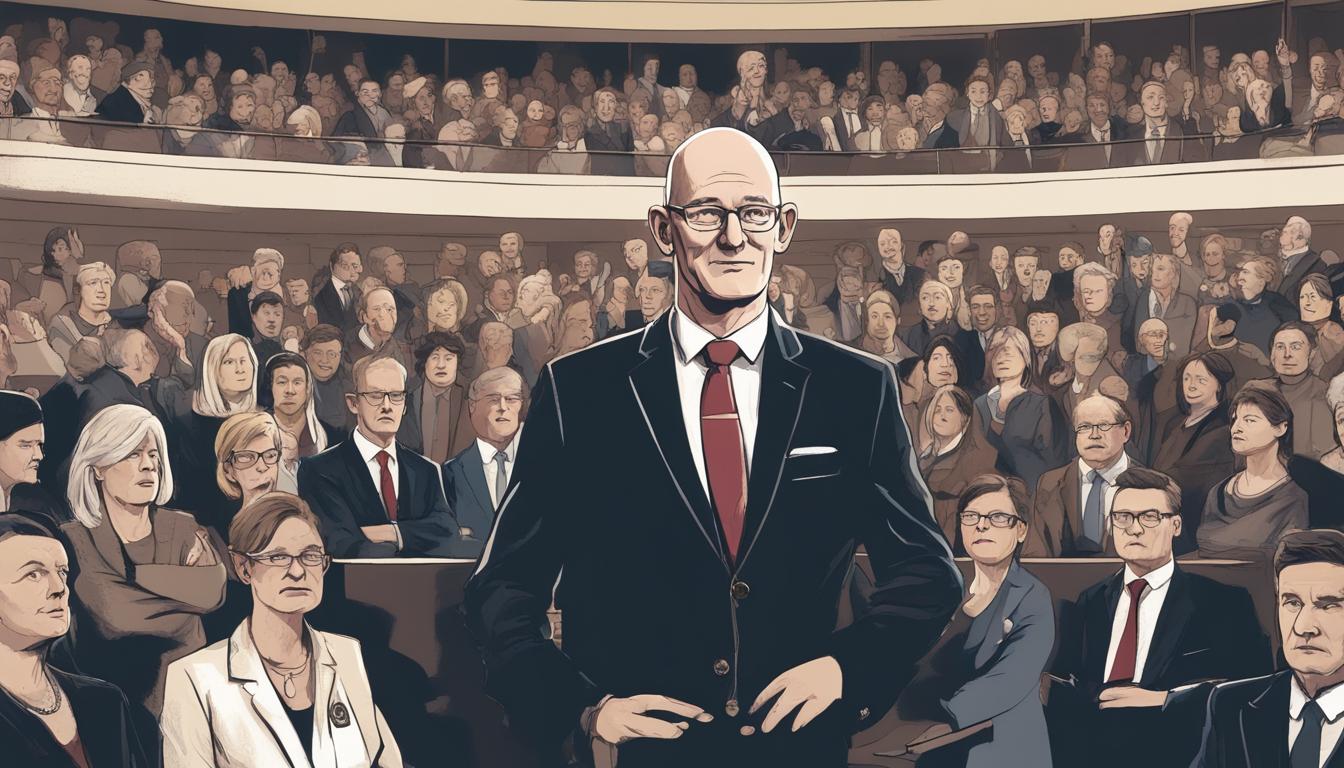John Swinney steps into the leadership role of the SNP, taking over after Humza Yousaf’s resignation, amid challenges of party unity and financial scrutiny.
John Swinney has been confirmed as the new leader of the Scottish National Party (SNP), paving the way for him to potentially become Scotland’s next First Minister. This leadership shift follows Humza Yousaf’s resignation, both from the party leadership and his role as First Minister. Swinney, a seasoned politician within the SNP and a long-serving member of the Scottish Parliament, assumes leadership at a time of political flux for the party.
Swinney’s ascent to the leadership was uncontested after his potential rival, SNP activist Graeme McCormick, decided not to stand and instead supported Swinney. The Scottish Conservative leader, Douglas Ross, has expressed concerns regarding Swinney’s ability to effectively lead, pointing to previous leadership tenures and policy issues.
Within his party, there is a call for unity and a need to address internal divisions, a task Swinney is set to prioritize. His leadership also arrives amidst ongoing investigations into SNP’s finances and challenges such as navigating a minority government situation in Holyrood. Key political figures like Kate Forbes, who has previously contested for the SNP leadership, have shown support for Swinney, highlighting his moderate and experienced approach to governance.
Swinney’s leadership strategy includes fostering collaborations within and beyond his party to ensure legislative success and addressing broad issues such as the climate crisis and social equality, emphasized by the Scottish Greens. Looking forward, Swinney’s immediate tasks involve securing enough support within the Scottish Parliament to officially assume the role of First Minister and forming his cabinet, decisions that will be crucial in defining his tenure and the direction of the SNP.













